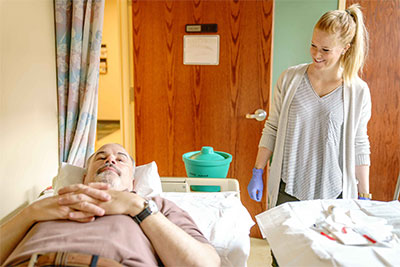Clinical and Translational Research Centers (CTRC)
Locations
 Provide infrastructure, resources, and dedicated space to conduct clinical research. Available resources include research nursing, nutrition, informatics, statistics, regulatory and compliance support and core laboratory services. Supporting both investigator-initiated
studies including multi-center NIH studies and industry-initiated protocols. All services are provided as fee-for-service resources with federally-funded studies receiving subsidized rates. Only IRB-approved protocols can request CTRC services.
Provide infrastructure, resources, and dedicated space to conduct clinical research. Available resources include research nursing, nutrition, informatics, statistics, regulatory and compliance support and core laboratory services. Supporting both investigator-initiated
studies including multi-center NIH studies and industry-initiated protocols. All services are provided as fee-for-service resources with federally-funded studies receiving subsidized rates. Only IRB-approved protocols can request CTRC services.
CTRC units are available at:
- CU Anschutz
- University of Colorado Hospital
- Children's Hospital Colorado
- National Jewish Health
- University of Colorado Boulder
CTRC Contacts |
| UCH Adult IP Unit 720-848-7907 |
| UCH Adult OP Unit 303-724-1225 or 303-724-1226 |
| Adult CTRC APP [email protected] |
| CHCO OP Unit 720-777-2581 |
| UCH Adult Nursing Manager 720-848-7901 or 303-724-4402 |
| CHCO Nursing Manager 720-777-4700 |
| AHSB CTRC Core Lab 303-724-4093 |
| CHCO CTRC Core Lab 720-777-8209 |
| Nutrition Services 303-724-1219 |
| Cardiovascular BioImaging 303-724-4151 |
| National Jewish Health CTRC 303-398-1658 |
| University of Colorado Boulder CTRC 303-735-3587 |
| Clinical Research Support Team (CReST) |